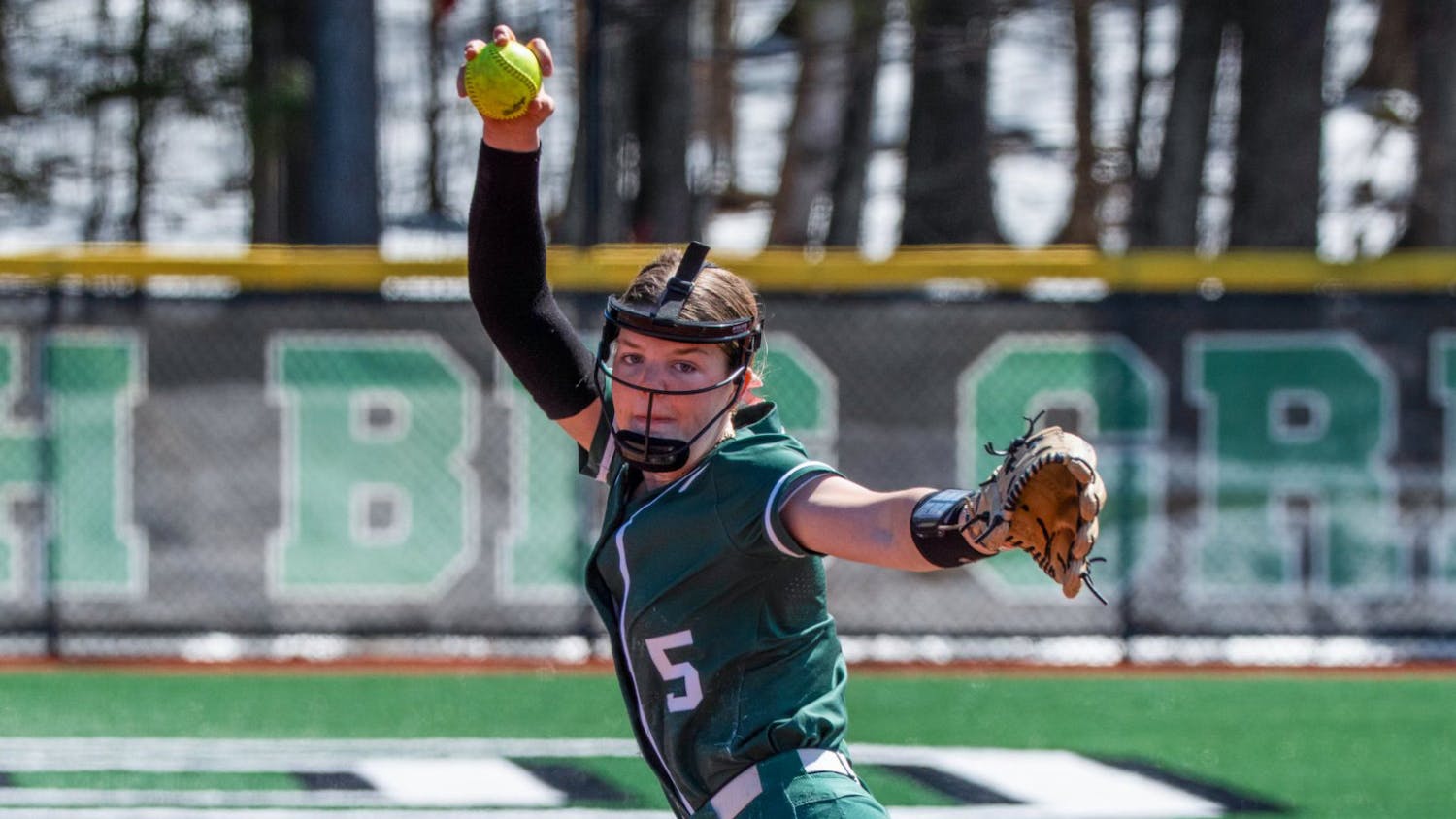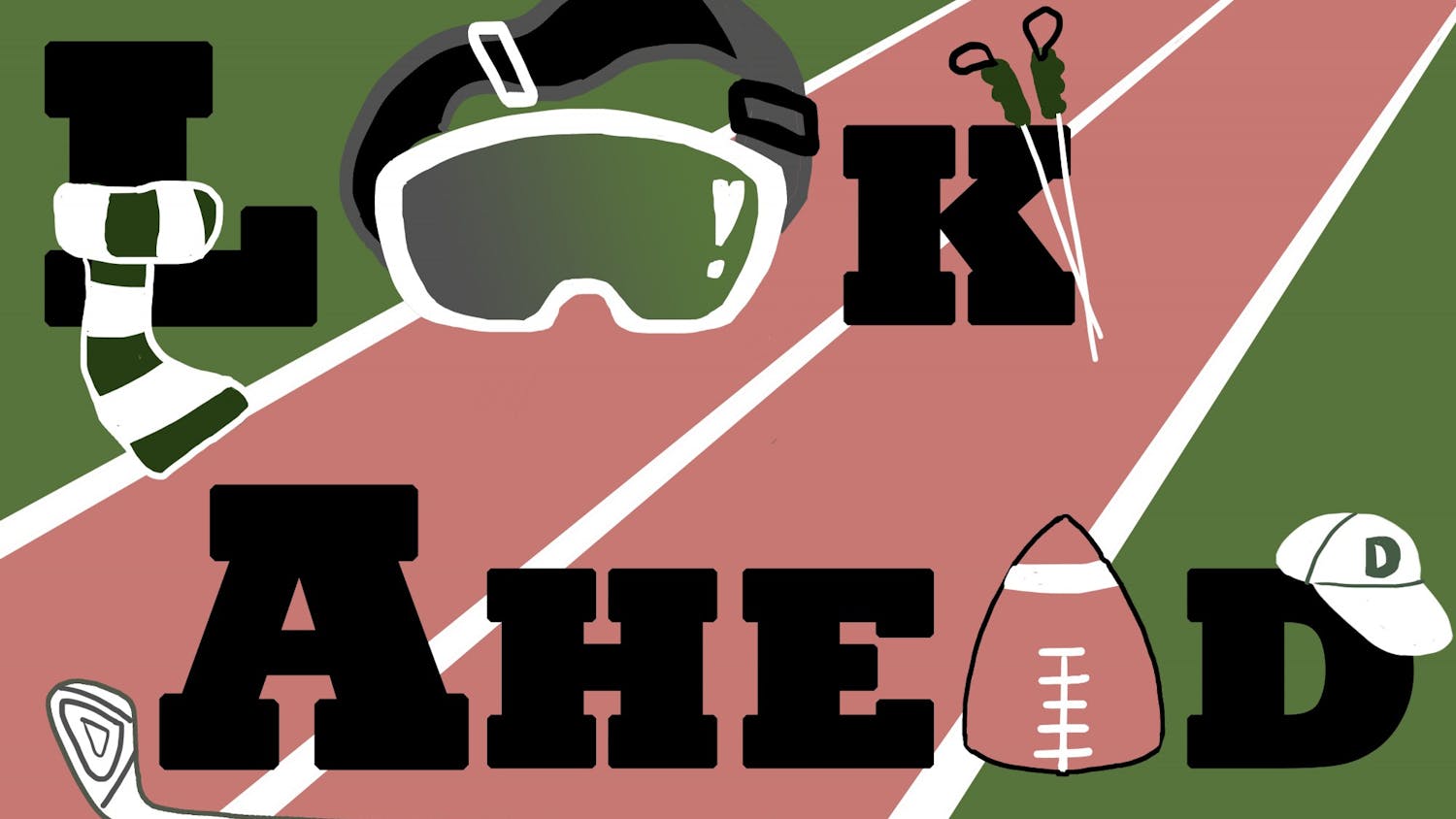After testifying against the use of steroids in professional sports in front of a congressional committee, Baltimore Orioles's slugger Rafael Palmeiro failed a routine drug test. Although Palmeiro claimed complete innocence, he was suspended from the Major League Baseball on Aug. 1. Following the suspension, Dartmouth sports reporters go head-to-head to debate whether or not Palmeiro should be allowed to return to the Orioles' dugout.
Question: Should Rafael Palmeiro come back to baseball after his ten-game suspension?
Jeremy Feldman: Calling for the immediate retirement of Rafael Palmeiro is not only premature, but it is completely nonsensical. When Palmeiro's ten-game suspension reaches completion, we will be no closer to knowing the entire story behind his suspension for a using banned substance.
All we know is that Palmeiro has claimed that he unintentionally took steroids. Looking around the major leagues today, there are two prominent sluggers -- Gary Sheffield and Barry Bonds -- who have used the "I took steroids, but I thought it was candy" defense, yet are still cheered on the field. There is even one player, Jason Giambi, who allegedly admitted to injecting steroids throughout his career. All he had to do was say he was sorry, and baseball fans instantly forgave him. For anyone to call out Palmeiro and tell him to retire should also tell Bonds, Sheffield and Giambi to follow suit. All three are equally, if not more, guilty than Raffy.
Rob Esposito: Simply put, it would be in the best interest of Palmeiro as well as his team to hang up the cleats and call it quits. He has already tarnished his once-admirable career with lies and deceitfulness, and coming back to finish the season after his suspension will not only bring more spotlight to an already despised player, but will also take away from the Orioles as a team. If he comes back to play out the rest of the season, don't be surprised if the Orioles let all hopes of making a run at the playoffs late in the season go down the proverbial crapper.
It is true that there are other players in baseball that have tested positive for banned substances and have come back to Major League Baseball. However, at least they didn't lie to millions of baseball fans, which is exactly what Palmeiro did. That oh-so-emphatic "I have never taken steroids" statement at the Congressional Hearing months back is a slap in the face to all baseball devotees now that he has been caught, and there is no reason to believe that anything Palmeiro has to say even remotely resembles the truth. Sadly, over-zealous Orioles fans seem to want to cling to their idealized "First-Ballot Raffy" instead of looking at the facts, dealing with the situation logically and considering what is best for the team.
Q: Does Rafael Palmeiro have an obligation to his team to come back and play the rest of the season?
JF: Before the season started, the Orioles signed Palmeiro to a one-year, $5 million contract. Palmeiro has been known throughout his career as an honorable guy. He certainly intends on fulfilling his promise to the Orioles and will finish out the season. It is not only his right to play, but also his obligation. The Orioles, starved for some offense, could use a big bat like Palmeiro's. He has been the Orioles' most effective left-handed batter all season.
This season Palmeiro is batting .280 and ranks second on the team in home runs (18) and RBIs (59). Not only has he been a solid hitter, but he is a gold-glove caliber first baseman.
Known to be great at scooping up low-throws, Palmeiro has only four errors all season, which is exactly one-third of the errors committed by Rob "Chuck Knoblauch" Esposito in our intramural softball game, Monday. Palmeiro will come back and continue to produce like he has all season. Until a first-time positive test leads to a lifetime ban, Palmeiro has every right to play.
RE: As I've already stated, anything short of retirement can only be hurtful to Palmeiro and the Baltimore Orioles. Although it must be noted that he is still technically a member of the Orioles -- and once he has served his 10-game suspension, there is nothing stopping him from rejoining his teammates on the field -- Palmeiro must also realize the cloud of cynicism and criticism that he will forever carry over his head and onto the field if he continues to play.
Under normal circumstances, there is no reason for Palmeiro not to return to play, but when the circumstance is a player with Hall-of-Fame numbers getting caught for one of the most potent and detectable steroids on the market, one can not help but be astonished at the blatant idiocy and selfishness of his actions. No one wants a liar on their team, and no one wants to root for a cheater. He gave up any obligation he had to his team the moment he injected Stanozolol into his body.
Q: Is there any reason to believe that Rafael Palmeiro is telling the truth?
JF: Am I the only one that still believes Rafael Palmeiro? The best defense he has right now is that he is the last person on earth who would want to mess with steroids.
A few months ago, he stated to a congressional committee, under oath, that he had "never used steroids. Period." He was in the last year of his career. He was about to get his 3,000th hit and subsequently become a lock for the Hall of Fame, quite possibly on the first ballot. With nothing left to prove, why in the world would Palmeiro intentionally take steroids this year?
Stanozolol is one of the most easily detectable steroids used by athletes. If he were intentionally taking a steroid with so much to lose, wouldn't he at least make sure he didn't get caught? I say we let Raffy tell his side of the story and, until then, we'll see him batting cleanup for the O's.
RE: I answer to Mr. Feldman's question: Yes, you are the only one who is still disillusioned enough to believe in Rafael Palmeiro. Let me lay this out for everyone -- Palmeiro tested positive for a drug called Stanozolol. According to Dr. Gary Wadler of New York University, Stanozolol, an anabolic steroid also known by the brand-name Winstrol, can help an athlete get stronger, build muscle mass, boost acceleration and recover faster from workouts. More importantly, Wadler says that Stanozolol is also known for helping older players avoid injuries and stay healthy late in their careers.
The fact that in 20 years, Palmeiro never went on the disabled list, and despite never having an MVP season, he forged 3,000 hits and over 500 home runs over his lengthy career becomes very interesting and begs one to ask just how long Palmeiro has been getting away with this?
Furthermore, it is preposterous to believe that Palmeiro "unknowingly" ingested this banned substance. Stanozolol is not found in trace amounts of any other legal supplements, meaning that it had to have come from illegal substances.
We also have to remember that this man is a professional athlete -- his body is his livelihood and rest assured that professional athletes, including Palmeiro, are aware of everything that goes into their bodies. With this knowledge, it is very hard to believe that Palmeiro "accidentally" ingested this illegal substance, and it is very easy to see how the rewards of a Hall of Fame career might outweigh the risk of getting caught.
The bottom line is that Palmeiro broke the rules, and he has exacerbated an already embarrassing and disgraceful situation by lying about it. You don't use steroids, you don't cork your bat and you don't doctor the ball.
The rules are posted in every dugout in the league and there is no excuse for breaking them. Using steroids affects not only one or two games, but rather entire careers. If we base a player's candidacy for the Hall of Fame on their career, there is no reason anyone should consider degrading and shaming the Hall of Fame with Rafael Palmeiro's presence in Cooperstown.



